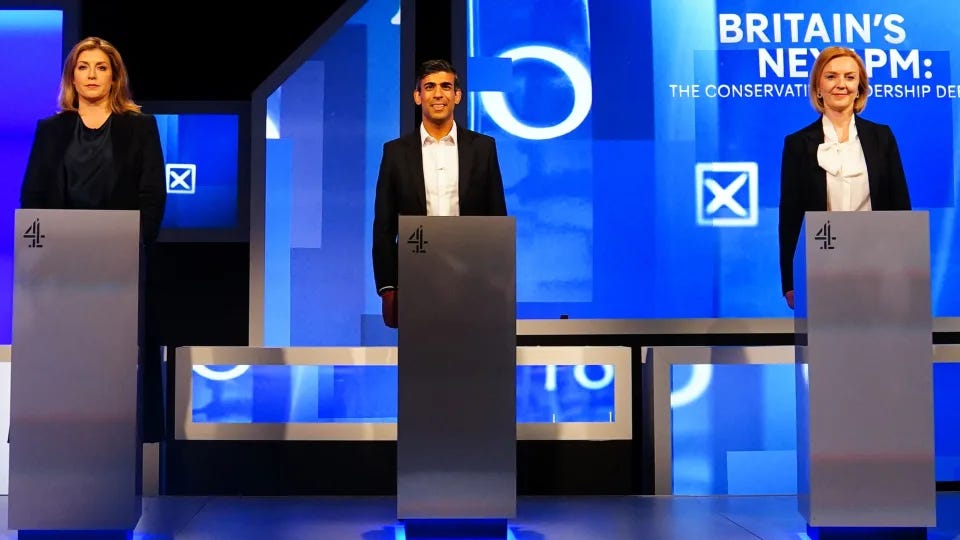The cost may be too high, if it entails the general breakdown of public trust and support for the State. This is especially important in a nation historically founded on a deep mistrust of arbitrary executive power, on the even-handed administration of law and the regular revalidation of government by the people’s express will.
The modern state has acquired almost limitless resources and the citizen is correspondingly far weaker and more vulnerable. Even an individual with substantial private means can have difficulty in seeking a legal remedy against official wrongdoing. For years, Trump had to defend himself against what now seem false allegations of conspiracy with Russia, yet his case against certain FBI officials said to be involved in the frameup was thrown out just this 22 July, on the grounds that they were protected from personal liability by the 1988 Westfall Act, which indemnifies Federal employees carrying out duties in their official capacity.
Was it with a similar sense of impunity that those working behind the scenes selected federal magistrate Bruce Reinhart, who recused himself on June 22 from overseeing a Trump lawsuit against Hillary, to issue the warrant for the search of Mar-a-Lago; and included in the search party some FBI agents who are said to have been personally involved in the ‘Russiagate’ affair?
Appearances matter and ‘the optics’ are bad in this case. In suspicious eyes it seems plausible that the justice system has strayed from impartiality, so confident in its invulnerability that it can afford to be careless in its choice of servants. People are beginning to ask themselves, ‘If they can do these things to him, is anybody safe?’
Has the Leviathan become too big?
If the US intelligence community were set up as a separate State of the Union, it would be a sizeable one. Its annual budget is $85.6 billion, which ranks it parallel with the GDP of Idaho and above that of ten other US States; and more than the GDP of two-thirds of the world’s countries.
Leaving aside that part - about a quarter - of the overall Intelligence budget that is allotted to military and foreign intelligence, the FBI consumes some 17% of the (domestic) National Intelligence budget. Its Director, Christopher Wray, lists many serious ‘Key Threats and Challenges’ in his $10.7 billion request for 2023.
Yet, how do we do a cost-benefit analysis?
Say we looked only to save lives (though the FBI seeks to do much more.) A 2003 study set the value of a statistical life (VSL) in the US at a median $7 million, which adjusting for inflation is around $10.5 million today. How many lives does the FBI save each year, but how many more could more be saved per dollar spent, by e.g. national safety regulations, medical interventions, guidance on food and drink?
Tough one. Black SUVs and squads of agents with high-powered firearms are so much more dramatic, visually. But what do they achieve, other than to remind the little man - even a Trump - how small he is? Why go in so mob-handed - or at all?
As to impartiality, why by contrast was Hillary’s off-workingplace storage of classified information glossed over as mere carelessness?
As to timing, why now? Is it because the dust and noise raised by this Eliot Ness-style gangbusting raid may help give Trump’s political opponents some advantage in the runup to this autumn’s mid-term elections?
And what exactly was included in the 15 boxes of documents removed - surely not anything relevant to Trump’s lawsuit against Mrs Clinton, or against government agencies that made false claims about him? Did the FBI indulge itself in what is known as a ‘fishing expedition’ in the hunt for something, anything to help convict him of some felony, or at least serve to charge him pro tempore until the ballots are cast? Is the process the punishment, for a disruptor, a maverick, a challenger to a corrupt status quo (even granting that he himself is a cheating, brass-necked blowhard)?
Optics: so important, yet not so easy to manage. For every one rubbing his hands in glee at Trump’s discomfiture, there is another dreading what the State is becoming.
In the information age, there is already widespread concern over the government’s mass surveillance of its citizens, with all the implications for controlling us collectively and individually. Experience has shown that these cyberspying powers are apt to be misused:
Section 215 [of the PATRIOT Act] at the time authorized the FBI to obtain [telephone] records, but in this case, the FBI obtained nothing: the records instead went to the NSA, which was not mentioned in the statute. The statute said any records obtained had to be handled pursuant to FBI guidelines; they were not, and instead were handled pursuant to NSA guidelines…The State has powerful civil pals in the Silicon Valley giants (note how Mr Zuckerberg has renamed Facebook’s parent company ‘Meta’, brazenly advertising its use of metadata to discover our connections to everything and everyone we know.) Further, already every social media conversation can be monitored, ‘corrected’ by ‘fact-checkers’, drowned in assertive counter-propaganda or just plain censored. Even talk in the domestic setting can be spied on by ‘smart speakers.’
How do we avoid the world of Franz Kafka (how reluctant they were to release the affidavit that triggered the search warrant!), of ‘Minority Report’, of a Chinese-style social credit system? Is liberty only the freedom to be ‘good’?
Opening up the ex-President’s house has opened a can of worms for us all.





















